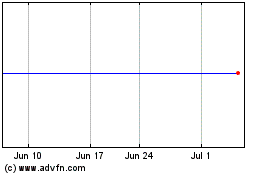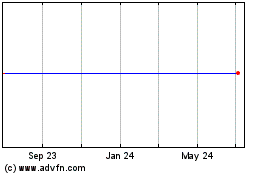Adamas Pharmaceuticals, Inc. (Nasdaq: ADMS), a company dedicated
to developing and delivering medicines that make a meaningful
difference to people affected by neurological diseases, today
announced it has been selected as one of five finalists in the UCSF
Health Awards 2021 New Therapeutics category. This year’s UCSF
Health Awards program, which historically focused on the digital
health tech industry, was expanded to include several life science
categories. Companies selected as finalists have been evaluated on
innovation, impact, and value of their product to improve patient
outcomes. Adamas’ new therapeutic is GOCOVRI® (amantadine)
extended-release capsules, the first and only FDA-approved medicine
indicated for the treatment of both OFF and dyskinesia in patients
with Parkinson’s disease.
“Adamas developed GOCOVRI to make everyday life significantly
better for people with Parkinson’s disease,” said Neil F.
McFarlane, Chief Executive Officer. “It is, therefore, an honor to
be selected as a finalist in a category recognizing the real impact
innovative therapeutics can have on patients. I’d like to thank the
Adamas team for their contributions which have enabled this
recognition.”
As Parkinson’s disease progresses, over 50% of people with
Parkinson’s disease (PWP) who have been taking levodopa for five
years begin to experience an increase in OFF episodes (including
stiffness, rigidity, and tremors occurring between medication
doses), dyskinesia (sudden uncontrolled movements) or both. This
increase in OFF and dyskinesia affects GOOD ON time when PWPs have
good movement control. By ten years, up to 100% of PWP experience
these symptoms which reduce the amount of GOOD ON time they have
and creates a significant burden on PWP and their families. OFF and
dyskinesia affect patients’ ability to perform basic tasks such as
walking, dressing, eating, balance, participating in hobbies, and
communicating. This reduction in GOOD ON time can be isolating,
affecting social interactions and emotional well-being.
Adamas developed GOCOVRI, which is the first and only
FDA-approved medicine indicated for the treatment of dyskinesia in
patients with Parkinson’s disease receiving levodopa-based therapy,
with or without concomitant dopaminergic medications, and as an
adjunctive treatment to levodopa/carbidopa in patients with
Parkinson’s disease experiencing OFF episodes. GOCOVRI is a major
innovation for the management of these symptoms. Its unique release
formulation is taken once daily at bedtime, providing an initial
lag and a slow rise in amantadine concentration during the night,
resulting in a high concentration from the morning and throughout
the waking day when patients need it most. This unique ability of
GOCOVRI to decrease both ends of the motor complication spectrum
changes the treatment paradigm by allowing physicians to treat
patients without the need to trade increased OFF time for reduced
dyskinesia or vice versa.
For more information about GOCOVRI, please visit
www.GOCOVRI.com.
About Parkinson’s disease, dyskinesia and OFF
Parkinson’s disease (PD) is a progressive, neurodegenerative
disorder caused by the gradual loss of brain cells that produce the
neurotransmitter dopamine and affects approximately one million
people in the United States. Dopamine decline in the brain results
in a wide range of motor (movement-related) and non-motor symptoms.
As the disease progresses, people taking levodopa-based therapy are
likely to experience reemergence or sudden return of stiffness,
rigidity and tremors between medication doses, referred to as OFF
episodes, which may be unpredictable. The primary treatment for PD
is with levodopa; however, over time levodopa may lead to
involuntary, uncontrolled movements known as dyskinesia. The abrupt
and unpredictable transitions between episodes of dyskinesia,
normal movement, and OFF lead to considerable impact on patients’
lives.
About GOCOVRI
GOCOVRI® (amantadine) extended-release capsules is the first and
only FDA-approved medicine indicated for the treatment of
dyskinesia in patients with Parkinson’s disease receiving
levodopa-based therapy, with or without concomitant dopaminergic
medications, and as an adjunctive treatment to levodopa/carbidopa
in patients with Parkinson’s disease experiencing OFF episodes.
Taken once daily at bedtime, GOCOVRI provides an initial lag
(delayed release) and a slow rise in amantadine concentration
during the night, resulting in a high concentration from the
morning and throughout the waking day (extended release).
Additionally, in the clinical trials, the adjunctive use of GOCOVRI
did not require dose changes to dopaminergic therapies. The most
commonly observed adverse reactions with GOCOVRI were
hallucinations, dizziness, dry mouth, peripheral edema,
constipation, falls and orthostatic hypotension.
For more information about GOCOVRI, please visit
www.GOCOVRI.com.
IMPORTANT SAFETY INFORMATION
CONTRAINDICATIONS
GOCOVRI is contraindicated in patients with creatinine clearance
below 15 mL/min/1.73 m2
WARNINGS AND PRECAUTIONS
Falling Asleep During Activities of Daily Living and Somnolence:
Patients treated with Parkinson’s disease medications have reported
falling asleep during activities of daily living. If a patient
develops daytime sleepiness during activities that require full
attention (e.g., driving a motor vehicle, conversations, eating),
GOCOVRI should ordinarily be discontinued or the patient should be
advised to avoid potentially dangerous activities.
Suicidality and Depression: Monitor patients for depression,
including suicidal ideation or behavior. Prescribers should
consider whether the benefits outweigh the risks of treatment with
GOCOVRI in patients with a history of suicidality or
depression.
Hallucinations/Psychotic Behavior: Patients with a major
psychotic disorder should ordinarily not be treated with GOCOVRI
because of the risk of exacerbating psychosis. Observe patients for
the occurrence of hallucinations throughout treatment, especially
at initiation and after dose increases.
Dizziness and Orthostatic Hypotension: Monitor patients for
dizziness and orthostatic hypotension, especially after starting
GOCOVRI or increasing the dose.
Withdrawal-Emergent Hyperpyrexia and Confusion: Rapid dose
reduction or abrupt discontinuation of GOCOVRI, may cause an
increase in the symptoms of Parkinson’s disease or cause delirium,
agitation, delusions, hallucinations, paranoid reaction, stupor,
anxiety, depression, or slurred speech. Avoid sudden
discontinuation of GOCOVRI.
Impulse Control/Compulsive Behaviors: Patients may experience
urges (e.g. gambling, sexual, money spending, binge eating) and the
inability to control them. It is important for prescribers to ask
patients or their caregivers about the development of new or
increased urges. Consider dose reduction or stopping
medications.
ADVERSE REACTIONS
The most common adverse reactions (>10%) were hallucination,
dizziness, dry mouth, peripheral edema, constipation, fall, and
orthostatic hypotension.
Please see full Prescribing Information for additional important
safety information at
https://www.gocovri.com/assets/pdfs/Gocovri_Prescribing_Information.pdf.
About Adamas
At Adamas, our vision is clear – to deliver innovative medicines
that reduce the burden of neurological diseases on patients,
caregivers and society. We are a fully-integrated company focused
on growing a portfolio of therapies to address a range of
neurological diseases. For more information, please visit
www.adamaspharma.com.
View source
version on businesswire.com: https://www.businesswire.com/news/home/20211001005174/en/
Media: Sarah Mathieson Vice President of Corporate
Communications 510-450-3528 smathieson@adamaspharma.com
Investors: Peter Vozzo Westwicke 443-213-0505
peter.vozzo@westwicke.com
Adamas Pharmaceuticals (NASDAQ:ADMS)
Historical Stock Chart
From Oct 2024 to Nov 2024

Adamas Pharmaceuticals (NASDAQ:ADMS)
Historical Stock Chart
From Nov 2023 to Nov 2024
